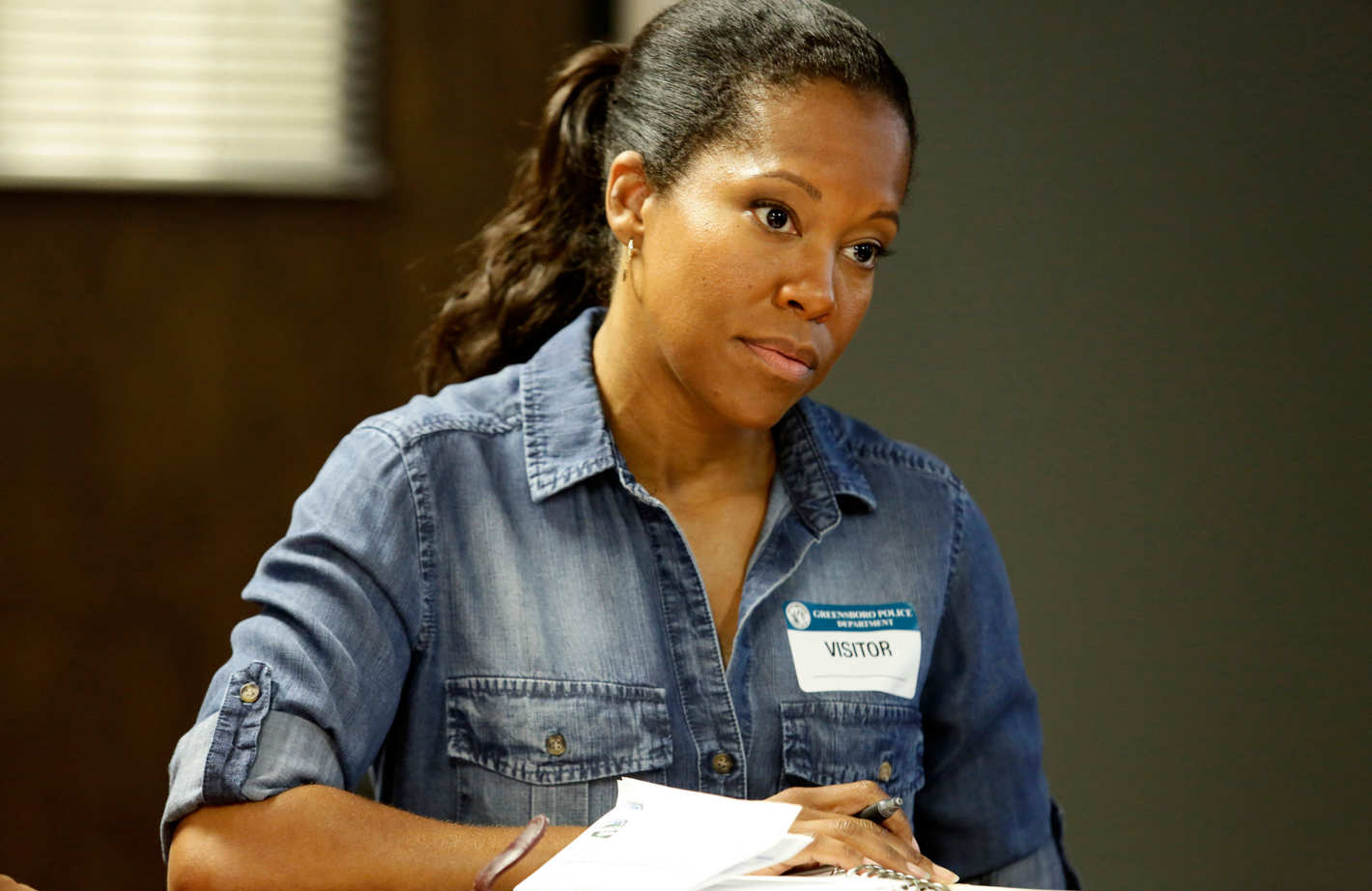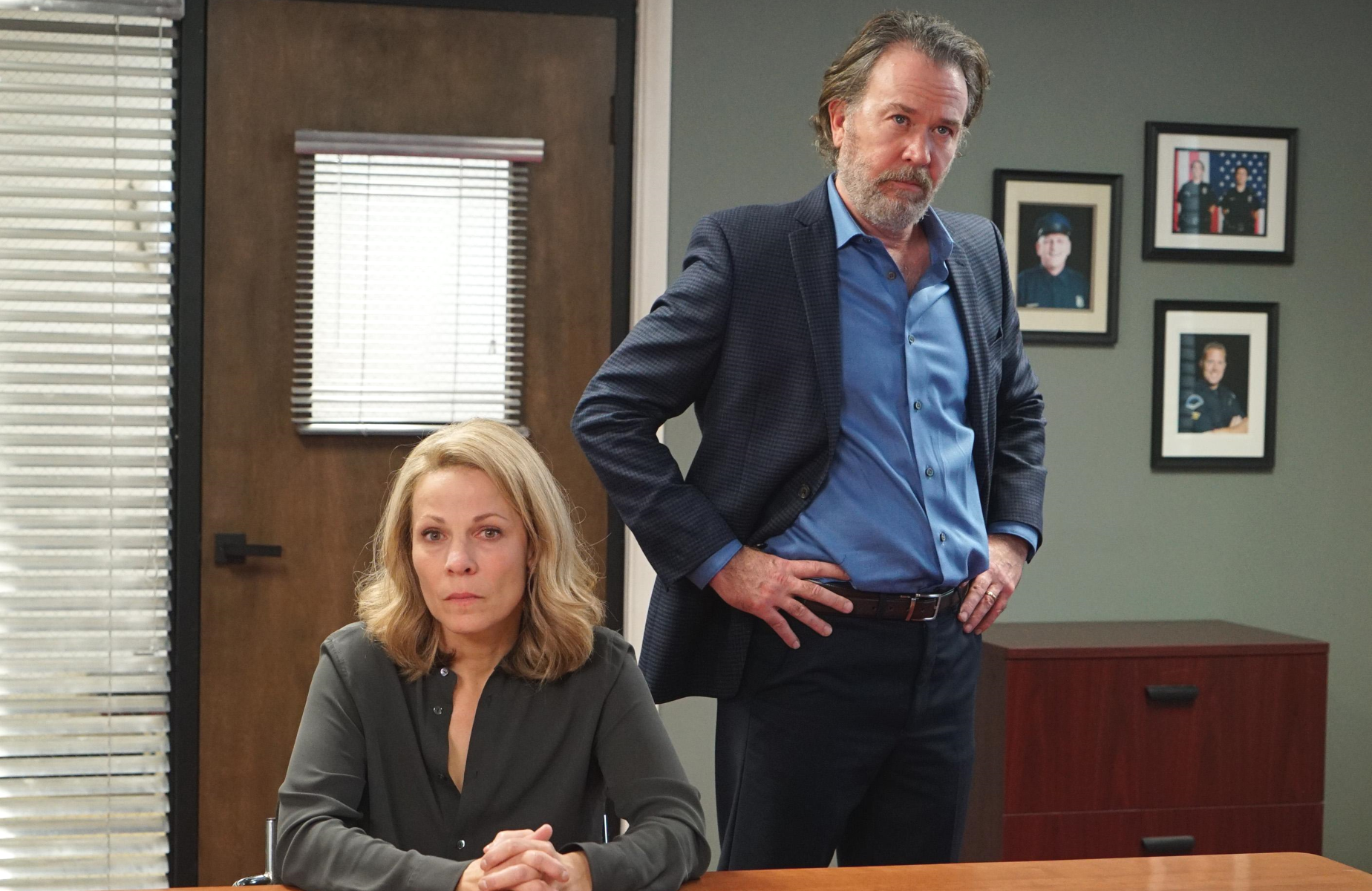American Crime: Once You’ve Seen It, You See America Differently
-
 In Season 3 of American Crime, Felicity Huffman plays a white lady of privilege who suddenly becomes aware of her role in a rotten system — a role that invites comparisons to her real life. (ABC)
In Season 3 of American Crime, Felicity Huffman plays a white lady of privilege who suddenly becomes aware of her role in a rotten system — a role that invites comparisons to her real life. (ABC)American Crime
Series 3
Watch on NetflixJohn Ridley, the creator of American Crime, knows few limits for his protean intellect and artistic ambition. Starting out in standup and writing for sitcoms, Ridley made his way to the dramatic side through novels and television. He won an Academy Award in 2014 for 12 Years a Slave, using a 160-year-old book to produce a timely, even urgent, screenplay with the force of a bullwhip lash. He’s also written two series of graphic novels exploring the upheaval of the 1960s and ’70s through the eyes of politically motivated superheroes. And he made Let It Fall, an essential documentary about the 1992 L.A. riots (also on Netflix).
There are provocateurs who just like to get a rise out of people, but Ridley has higher aspirations. Even in his comedy days, doing a five-minute set on the Letterman show, he knew how to make his audience uncomfortable long enough to get them thinking about their attitudes toward race, immigration, gay rights, things he cared about. American Crime is full of such provocations, yet it’s the kind of first-rate drama you could watch with your Hannity-loving uncle and have a civil conversation about it afterwards.
This edition of The Overlooked is devoted to the low-rated third (and final) season of ABC’s American Crime, one of the most important dramas of the Peak TV era.
Designed as a limited anthology series, American Crime was titled and promoted as though it were another intriguing ABC procedural. Sure enough, there is a murder early on in Series 1, but as Joshua Alston pointed out in his review, “Ridley doesn’t appear the least bit interested in who actually committed the murder.” Rather, “the purpose of the killing in the story is to throw the characters into emotional disarray and force them to face trials even more abstract and arduous than the one being adjudicated in the courtroom.”
So … not a procedural. Click! But some viewers stuck around, enough to earn the show a renewal for a second, then a third series. And they were rewarded with great performances from the show’s corral of actors including Timothy Hutton, Regina King, Benito Martinez, and Lili Taylor.
As Matt Zoller Seitz wrote at the time, “the show never feels entirely issue-driven. Season one dealt with, in no particular order, racism, xenophobia, secular versus religious mind-sets, class bias, the incompetence of the criminal-justice system, the socially destructive effects of the War on Drugs, and the ways in which prison tends to breed criminals rather than show them the error of their ways.”
For Series 2, the repertory company returned in new roles to explore the fallout from a sexual assault at a prep school. Ridley went right back to stirring the pot, but now added a new ingredient, acknowledging the growing power of the #Metoo movement. Ahh, but the rape in question does not involve a female, but a young male athlete assaulted by his own teammates.

The most-used descriptive for American Crime among critics was “uncomfortable.” Ridley wasn’t playing for laughs, and the show’s “unrelenting grimness,” Melanie McFarland observed, “probably resulted in a number of viewers cutting bait.”I didn’t find the show grim or off-putting. Challenging? Sure. But isn’t that why we keep watching shows like this? It takes time to acclimate to any showrunner who tweaks the formula, slows the pacing down, inserts interesting people in the background and is in no hurry to weave the seemingly disconnected story threads around each other.
Series 3 begins at the border, where Luis Salazar (Martinez) has joined a migrant caravan to enter the United States. The workers need to put food on their families’ tables back home, so they undertake this dangerous, anonymous labor putting food on ours. But Luis’ hands are soft. Other migrants notice he’s not working all that hard. That’s because he’s here on a mission — his son ran away from home and, last anyone in Mexico heard, had gone to North Carolina.
Later we’ll meet the Hesby family, longtime produce growers in the area, and see them squirm as wholesalers put the screws on them to deliver the goods at ever-lower prices.
“Our customers are price sensitive,” they’re told.
“You mean cheap,” fires back Carson Hesby (Dallas Roberts).
Almost any title for this show would be than American Crime, but Season 3 at least should’ve been subtitled The Price You Pay. Whatever emotional pain the Hesbys are feeling as their business slips away, it will be even worse for the people working their fields. They will be pushed harder and paid less. Some will pay the ultimate price for getting fresh vegetables to market.
We like to think no one inside our borders today could suffer a fate as terrible as Solomon Northup did in 12 Years a Slave. Ridley wants us to see that’s self-delusion, and interestingly, he uses Coy (Connor Jessup), a white suburban-looking teenager, to drive this point home. Picked up by a predatory crew chief who’s driving around town looking for fresh meat, Coy is driven to the middle of nowhere and forced to pick tomatoes. There he quickly descends into the hell of captivity that rivals anything in the pre-Civil War cotton kingdom.
As the series unfolds, American Crime counts the unseen cost of not only low-priced fruits and vegetables but cheap manufactured goods, off-the-books childcare, even online sex, the Internet’s favorite “victimless crime.”
In nearby Greensboro, Kimara (Regina King), a social worker, struggles to convince teenagers caught up in sex trafficking there’s a better way to find love and security. She walks the C-store aisles looking in the eyes of other shoppers, and she discreetly hands her card to any girl who seems on the edge. An hour later, it might be Shae (Ana Mulvoy-Ten, who kills it here) handing that same teenager a coke and a sandwich and inviting her to “come hang out” with her and her “friend.” So it goes in the marketplace.
Ridley’s passion for linking the past and present is one that I share. After a corpse is fished out of a river near one of the farms, a crew chief is asked if he knows the man. The crew chief says coldly, “We put a lot of bodies in that river,” a line that caused me to nearly jump out of my chair. It was just like that old Tom Paxton song about the three civil-rights workers in Mississippi, and how after they went missing “the Pearl River was dragged and two bodies were found/But it was a blind alley for both men were brown.”
Again and again Ridley shows us that the people referred to by newscasters as “migrant workers” or “the exploited” are human beings. There are occasional sermonettes on American Crime, but mostly good meaty drama about characters with struggles and dreams.
I was struck by the scenes where Luis wanders the back roads of North Carolina in search of his son. He interacts with farmhands from Africa, Asia, and any number of Spanish-speaking countries. Once America’s most homogenous industry, agriculture is as diverse as a McDonald’s in the Bronx. Are these dreamers getting ahead? Does anyone care?

Series 3 of American Crime is shorter and more ambitious than the two previous series. (If eight episodes seem a lot for one weekend, Episode 3 ties up nicely and sets the table for new stories to come.) Regina King took home Emmy Awards after the first two series, and she’s great here too, but every one of the female leads is fabulous: Lili Taylor, Janel Moloney, Mulvoy-Ten, and — speaking of ripped-from-the-headlines — Felicity Huffman, whose role as a privileged white lady winds up being a little too true to life.
There are twists here you won’t see coming. Beautiful photography and editing that reminds me of the dreamiest documentaries. And a finale that ends very satisfyingly, if not happily. American Crime may or may not get you to care the next time you see the USA at 65 miles an hour, but I’ll bet these eight episodes get you thinking about it.
People are talking about American Crime in our forums. Join the conversation.
Aaron Barnhart has written about television since 1994, including 15 years as TV critic for the Kansas City Star.
TOPICS: American Crime, ABC, Netflix, John Ridley